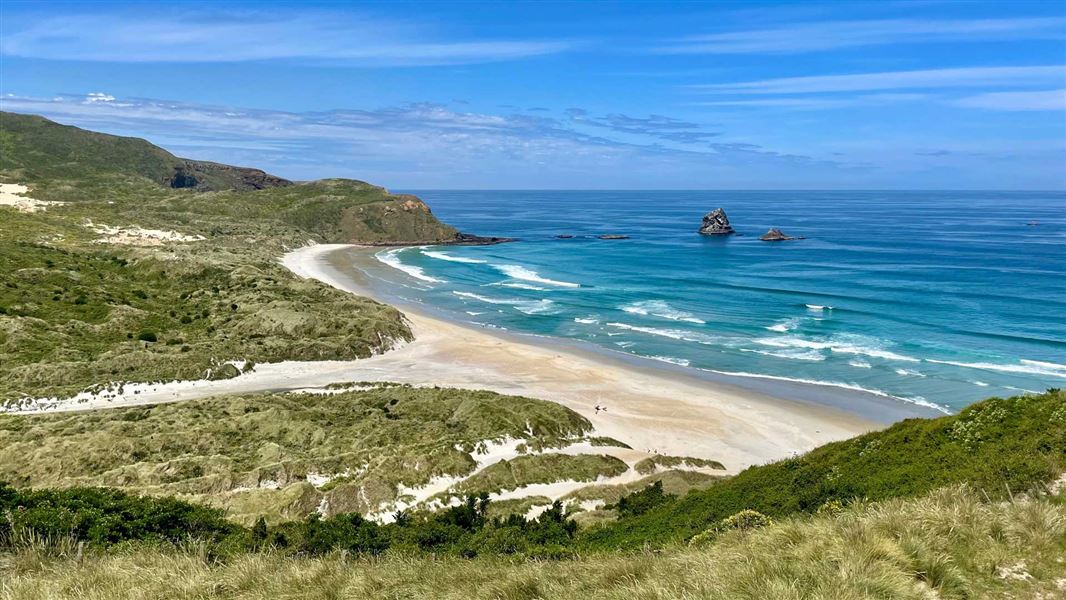560 m return via same track
Part of Sandfly Bay Wildlife Refuge is closed from 1 November to 28 February inclusive to protect wildlife in the area. From the viewing platform, follow the signs to access the beach.
Image gallery
Brochures
Take a stroll down the path through farmland to the viewing platform. Enjoy the views of Sandfly Bay, the coastline and the wild ocean.
Past the platform, the track to the beach follows a sandhill and is steep. It is maintained to a tramping track standard only, due to sand movement and erosion. Follow the orange marker poles and signs to stay on the track.
A good level of fitness is required on this track.
Take care as erosion can damage the sandhill making some parts difficult to walk.
Turn off Highcliff Road onto Seal Point Road. The track begins at the Sandfly Bay carpark at the end of this road.
Don't leave valuables in your car – there have been break-ins.
Swimming can be dangerous where there are strong winds and currents.
Track crosses private land – stay on formed track.
There may be stock – do not disturb and keep your distance.
Dunedin Wildlife Care Code
Dunedin is home to rare and special wildlife. Do not disturb, touch, feed or go too close to wildlife.
Sea lions and other seals
View all seal and sea lions from a safe distance of at least 20 m and do not disturb them. If you must pass sea lions on the beach, keep as much distance as possible and do not loiter.
Penguins
Stay at least 50 m away from penguins. Never approach them. Do not block their entry and exit from the water as this prevents them from returning to feed chicks. Do not use flash photography.
Red-billed gulls
Do not feed or harass gulls. Don’t let dogs chase them. They are endangered and vulnerable to human disturbance.
Drones and wildlife
It is an offence to fly drones within 150 m of marine mammals or 300 m vertically above. The use of drones is prohibited in many sensitive areas and can require a permit elsewhere.
Find more information on recreational drone use on conservation land.
New Zealand fur seals/kekeno and New Zealand sea lions/pakake haul out on the rocks and beach and wallow in the sand. Seals and sea lions may look placid but they are powerful, wild predators and can be very dangerous if they are approached too closely.
Other seabirds such as spotted shags, sooty shearwaters and variable oystercatchers are also based in the area.
DOC Customer Service Centre
| Phone: | 0800 275 362 |
| Email: | dunedinoffice@doc.govt.nz |
| Address: | Ōtepoti / Dunedin Office |
